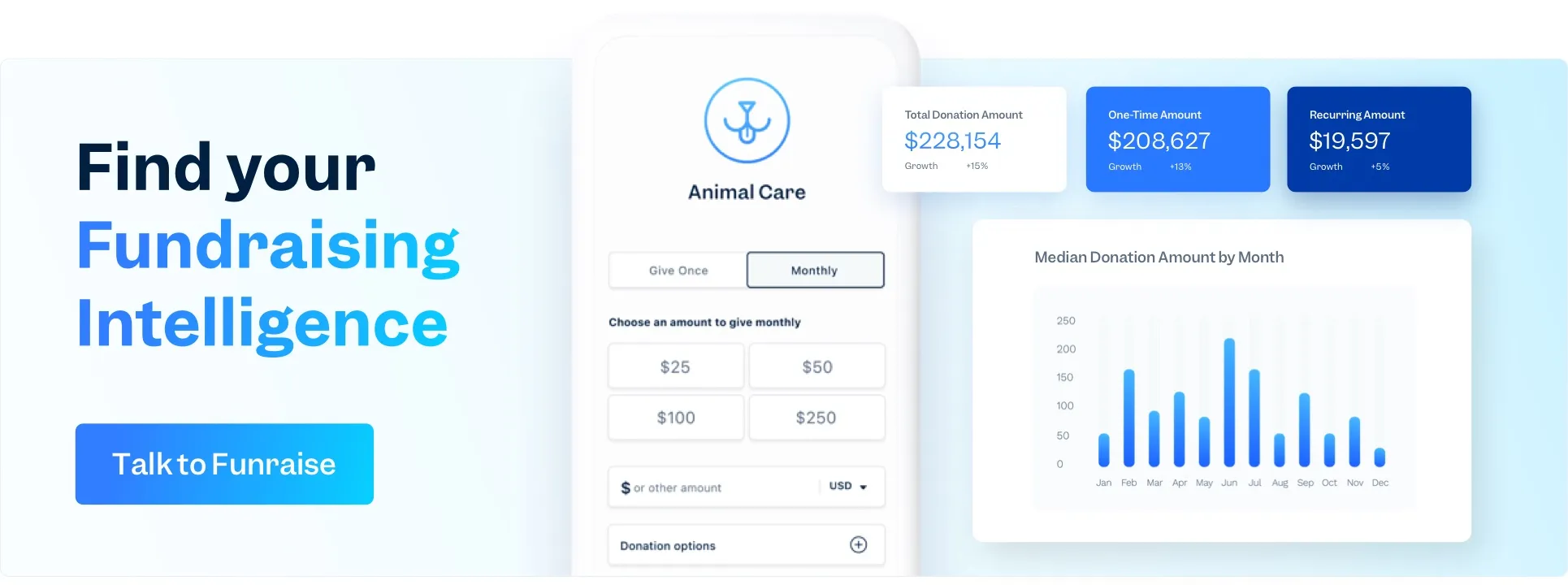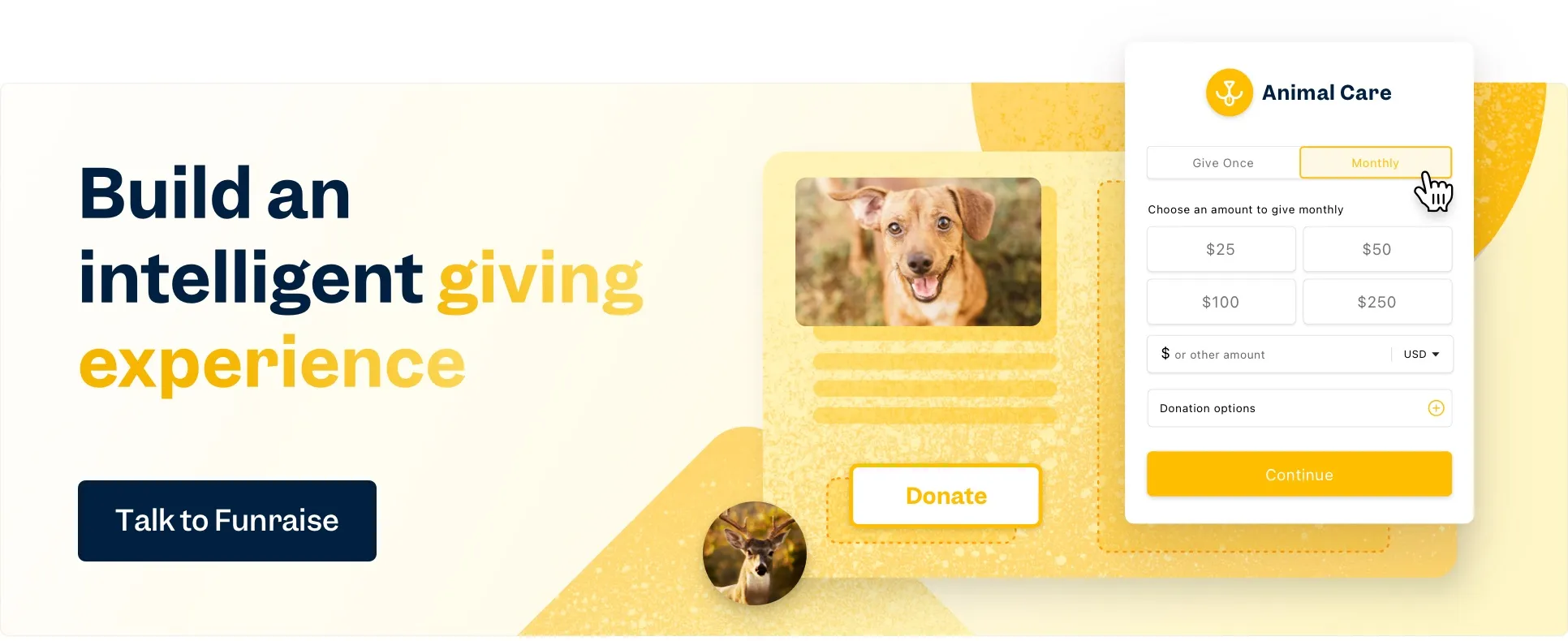Have you ever googled "how to run a board meeting" or "build an effective nonprofit board"? Wondering how you can optimize your board's radness?
March of Dimes Executive Director Erin Chidsey Funraise CEO and Co-founder Justin Wheeler uncover some veeery iiinteresting ways that you can herd the cats that are your board members.
You know it's never easy to motivate, engage or direct your entire board, but do you know how you can get them all on the same page so that they do those things for themselves? Is there a way to hold them accountable without having to micromanage? You can do all this and more with the straight scoop from Erin, the nonprofit whisperer and Board Expert at Southland Strategies.

Do you have any advice or feedback for a board that has spouses and/or close relationships within it?
While this isn't ideal, it happens. Lots of times boards are based on who you know, especially when you're working on a vision that board members have an emotional connection with. My advice is to set firm boundaries when it comes to each individual, make precise job descriptions and org policy, and be overly transparent in all interactions so each board member, staff, and volunteer know where they can and can't flex their muscles.
What you want to avoid is decisions being made "off the clock" or board members acting for one another. A set of checks and balances within this type of nonprofit is essential.
One other thing you will have to consider is how this affects your “give & get” policy. In the spirit of all board members adhering to equitable roles & responsibilities, a "give & get" should never be shared by two board members. Each spouse must be able to fulfill all roles & responsibilities independently, including "give & get". This should be considered a hard and fast rule, especially if board fundraising is a big part of your overall fundraising strategy.
If we're trying to recruit more high-level board members are there platforms you recommend using to connect? Related: Do you have suggestions for great ways to recruit key new "Kickass" Board Members?•
One of the primary roles of your current board is for them to recruit other board members. If you don’t have a nominating committee in place, this is a natural first step. This committee should consist of current board members and about two individuals outside your board to provide checks and balances. This team should actively work with your existing board/volunteer network to strategically build your board. If you have a high-level and robust board, it's likely that they have friends or networks they can tap into on your behalf.
As for "platforms," I don't have suggestions, but I'd absolutely recommend reaching out to former or current mentors in your sector, directors of niche recreational organizations in your area, and business associations for your constituents' neighborhoods might work. I would encourage your key executives to network, network, network. Building a board is a marathon, not a sprint. Connect with current and former constituents. Have broad strokes conversations with them about your focus on developing and strengthening your board. Ask them who they know in various industries and see if they are willing to connect you to broaden your network.
The key is knowing what you're looking for—you're not looking for just anyone who'll accept a board position, you're searching for a person who can commit to pulling their weight in whatever way your board members are required to contribute.

Do you have any insight for start-up foundations who only have volunteer staff? The tip to recruit and engage the board was pure gold.
Thanks! I'm glad you were able to find value in that advice. Here's my simple (ha!) answer to your question: Put resources into recruiting more volunteers! Many hands make light work. If you have a life and family and job AND you're doing high-level board management as well as lower level volunteer work, you can't get it all done. Find someone to help out with the lower level work so you'll be free to engage the board. In the long run, your future self will thank you for building up your volunteer staff now, I promise.
Looking forward to the 2nd part of the last question: When do we remove an ED/CEO?
One of the primary functions of a board is to assume fiduciary responsibility for the organization. They do this by ensuring that the executive team is delivering on their promise to their donors and supporters. If the executive team, including the ED/CEO, is not producing or performing at the level required, the board should step in. One of the best ways to do this is through a mid-year and annual evaluation of the ED/CEO and their performance. However, I would also highly encourage the board to provide as much real-time feedback as possible so that there are no surprises in regards to how the ED/CEO may perceive their performance.

Any advice for a hellish hybrid of founder/board chair/ED? Related: We don’t have a CEO—that's a dream. Do I assume things all fall to the Board Chair?
The board chair should be independent of the organization, meaning they should not be a paid employee. The main reason for this mostly around optics as it doesn’t look good for the ED/CEO to chair the board. This is something charity watchdog sites like Charity Navigator would negatively ding an organization over.
Board members should not be involved in the day to day tasks of an organization. If the organization is in a time of transition, then perhaps board members will be expected to do more; however, it should be their top priority to find an ED/CEO ASAP; otherwise, it will be impossible for the organization to scale.
If you're describing anyone on your board as "hellish," you need to get them out. When it's your founder/board chair/ED that you're describing, they have no boundaries and aren't using their power for good. If there's nothing in your org's written policies that'll help you push them out the door, you should start looking for a way out for yourself. Catering to "hellish" people never solves the problem and frequently perpetuates more issues.
What would be your advice for a small young org (1-2 staff) just learning how to utilize their board? In the webinar, it was mentioned that different board members could partner directly with high-level staff, but if it's just the ED, that may be overwhelming or feel like too much to accomplish on their own.
Congratulations, you're in a great position! As a young org, you can start pretty fresh with boundaries, duties, and requirements for your board, along with setting board meetings your way. You can start off doing it right without having to correct ingrained habits that no one wants to give up. It sounds like you may be in the starting stages of board development so I would focus your energy around two things: 1) Fundraising and 2) program development. Your board should be able to help you with both, but fundraising may be the most critical thing for them during your startup season.
While it may be overwhelming, this creates an opportunity for the ED/CEO to engage with board members and get to know them on a deeper level. Once you’re able to hire additional staff, you’ll have insight into what makes your individual board members tick and can partner them with new staff appropriately. In the end, all board members want love and attention from the ED/CEO. At times, this may seem like another thing to add to your never-ending to-do list, but it will pay off in the long run.
If a board is only 3-5 members, would they all be expected to participate in the three core committees you suggested every board have?
In the case of a small board, it may be beneficial to take the tasks that each specific committee is in charge of and add those to the required duties of the board as a whole. You can set one person from the board to lead the charge on each of the tasks that would usually be worked on by a committee. Yes, it's a lot of hands in the pot, but when you've only got a few board members, it's all hands on deck!

And for more information on how to build a better board of directors, we've got you covered!































.webp)
.webp)











.webp)
.webp)

.webp)
.webp)
.webp)




